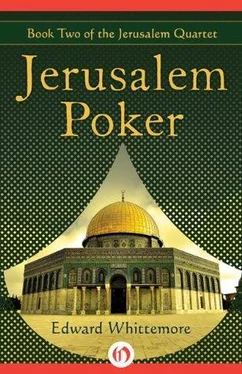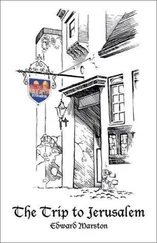Martyr wanted to, but how? He was still a common dragoman, although now he had the mummy cache.
But what role did mummies have in his life?
And then all at once that stunning incident occurred in the first light of an early summer day in 1914, on top of the Great Pyramid.
An English triplane carrying the morning mail to the capital, An anonymous pilot grinning in flying goggles and leather helmet, white scarf fluttering on the wind, The triplane skimming the top of the pyramid and gaily wagging its wings, gaily saluting the most impressive monument ever reared by man and cleanly decapitating an aging overweight German baron and his aging overweight wife, as if to signal the end of the leisurely old order of the nineteenth century. In the dizzying shock of recognition that came with dawn that morning, Martyr realized that his Victorian servitude had ended forever. And he also understood why Ziwar had sent him to Luxor when he had. Undoubtedly the old scholar had long known the secret pharaonic chamber was there, yet he had waited until he was about to die before he asked Martyr to go find it, so that Martyr would be the sole owner of the mummy cache. Thus had Ziwar placed in Martyr's hands a priceless instrument for retribution, and all for the sake of a woman the old scholar had loved briefly long ago.
Patience.
Extraordinary patience.
His great-grandmother waiting through the nineteenth century for justice to come. After she died, Menelik Ziwar waiting until 1914 before he told Martyr about the love affair of his youth and sent him up the Nile to take charge of the secret pantheon waiting there.
The patience of slaves and former slaves. And now he was determined to be equally patient in devising a master plan for the use of his instruments of power.
Cairo Martyr smiled. He was standing on the summit of the Great Pyramid, the headless naked bodies of the fat German aristocrats having come to rest some yards below him. The sun was on the horizon and he was on top of the Great Pyramid. A new age had arrived.
The mummies, instruments of power. What better place to ponder their future use than the unique hideaway bequeathed to him by old Menelik, sage of sages?
By the second week in August his caravan was ready the camels laden with a huge supply of tinned meat, exclusivety meat, Martyr having early gotten into the habit of eating only protein in order to survive the rigors of dragomandom.
The camels were unloaded at the base of the Great Pyramid and a band of porters labored over a weekend carrying the supplies up to the summit. When the entire top of the pyramid was heaped with tinned meat, Martyr paid off the foreman.
Why up here? asked the dazed man, breathing heavily.
Martyr smiled.
An airplane is picking me up here tomorrow morning. I'm taking this meat to my village in the Sudan.
There's a severe drought down there this summer.
The foreman laughed slyly, expecting no better answer from a black man.
And what's that animal asleep on your shoulder? asked the foreman. It looks like a little ball of white fluff.
Martyr smiled more broadly.
He looks like he's asleep but he's not. He's my guardian spirit and he watches over me and warns me if danger is near. Bongo, shake hands with this thieving fellaheen.
Upon hearing his name the little albino monkey instantly leapt to his feet on Martyr's shoulder, masturbating vigorously with his bright aquamarine genitals thrust forward, both tiny fists flailing away.
The foreman screamed and fled with his porters. But all the same Martyr watched them through his binoculars until they were out of sight, porters carrying goods to tombs and returning later to pillage them having always been a curse in Egypt.
After dark he tripped the combination of latches hidden in the crevices around one of the massive blocks of stone near the summit.
Powerful springs creaked. The block pivoted on an unseen iron post and gently swung open. He stepped into the foyer, struck a match and lit the lamp.
At the bottom of a short formal staircase lay the sunken parlor of Menelik Ziwar's spacious nineteenth-century flat.
Martyr gazed at the rich dark wood of the furniture that crowded the parlor, heavy solid pieces arm to arm and back to back, everywhere tassels and laces and doilies, legs that ended in claws crushing the heads of rodents in the thick carpets, lamps thickly shaded and standing only a few feet apart between the innumerable hunting prints on the walls, between the dozens of lacquered Chinese screens that were dividing space for no reason, the furniture in this room alone surpassing that to be found in the entire native quarter of any African city.
In style and layout the flat was massively Victorian. Martyr went on to inspect the large library and the formal dining room on the second level down, the well-equipped-workshop for archeological restoration on the third level down, the master bedroom and the two guest bedrooms on the fourth level, the kitchen and pantries on the fifth, the servants' quarters on the sixth and the storerooms on the seventh.
Beneath that was a cellar where firewood was stored. Altogether a roomy seven-story apartment, inverted and impressively solid, in the top of Cheop's pyramid.
Martyr spent the rest of the night transferring tinned meat into his new quarters.
In bequeathing the flat to Martyr only a month before his death, Menelik Ziwar had reconstructed its history as effortlessly as if he had been a witness to those events three and a half thousand years ago.
Evidence speaks for itself, the old Egyptologist had said. Remove yourself to the XVI Dynasty if you will, a lawless era. The mysterious Hyksos have conquered the kingdom, the shepherd kings as they're sometimes called, and although we don't know where they came from the epithet does seem apt. That is to say they don't seem to have been too bright, as we'll see. Well as usual when foreigners arrive and take over in Egypt, a lot of them are on the lookout for loot. Tomb-robbers lurk in the countryside waiting for opportune targets, and then as now none loom as large as Cheops' pyramid. Numerous tunnels have already been dug into the pyramid in search of its treasure chambers, but always laterally or uphill. I mention this not because it was hard work, but because direction is essential to our story.
All right, Cairo. One night we find ourselves in a Memphis tavern where a gang of sturdy but not very bright Hyksos adventurers are conspiring over beer. The tavern owner, a native Egyptian, overhears them talking about lost treasure. Now since he is a native Egyptian, and not just another Hyksos who has come out of history from nowhere and will inevitably go back there again, these rootless shepherds turned adventurers naturally respect the tavern owner. They look up to him and that's going to cause trouble, because he happens to have idealistic religious views. You wouldn't know it today but once there were actually Egyptians who had ideals.
Well, whispers the tavern owner as he serves another round of beer to the gang of conspirators, if it's treasure that's on your mind, what about the treasure in the Great Pyramid?
The Hyksos adventurers shake their heads gloomily. Everyone has already tried to look for that, they say, and no one has ever been able to find it.
True, says the tavern owner, but the reason they've all failed is because they always dug their tunnels uphill. Whereas a pharaoh, being a god, wouldn't have allowed his mummy to be dragged uphill to reach his burial chamber. Naturally he would have descended into it with his hands crossed on his chest, a much more dignified position. If you're a god you don't crawl uphill, you descend from the heavens.
In other words, said the tavern owner, the mummy would have been lowered from the top down, and that's how we should dig.
Читать дальше












